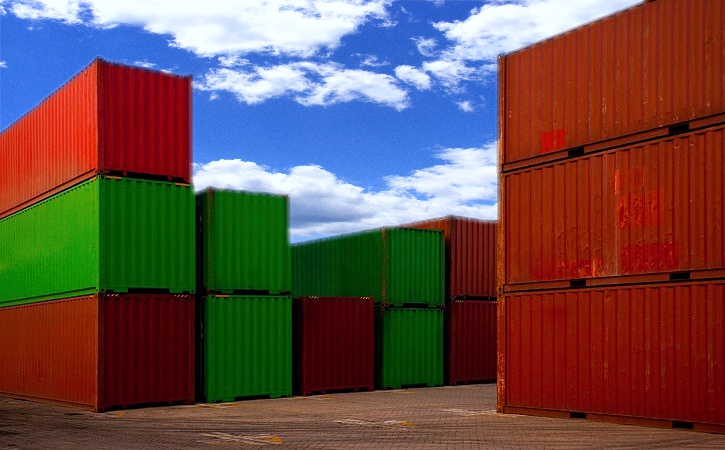Shipping Knowledge

The Association received an inquiry from one of its members about the legality of taking custody or auctioning the cargo in the event the owner of the cargo/consignee does not pay the charges or does not come to collect the Delivery Order.
The KSCAA Legal Committee's response to the above inquiry was as follows:
No, it’s not allowed to take custody or auction the cargo directly by the agent.
Reason:
Article 19 of the Ministerial Resolution No. KPA/1/2001-147 of the handling system at KPA provides that:
1- “The contractor is allowed to store goods in the warehouses and yards set for him and deliver them to their owners or the treasury if the storage period exceeds 90 days, the due demurrages will be as per KPA tariff.
2- Goods or containers are not allowed to be stored in the contractor warehouse for more than 90 days from the date of the deadline for the exemption period, and the contractor does not deserve any wages after the 90 days.
As a complement to the above
Article 167 of the Common Customs Law of the GCC State provides that:
“Upon expiry of the period specified by the minister or the competent authority, the Administration may sell the goods placed in the customs warehouses, those existing in the yards or wharves, or left out goods at the customs offices.:
In addition, article 168 provides that:
The Administration shall sell the following:
1. The goods and means of transport that have become the property of the customs under a confiscation judgment, a compromise, or a written waiver.
2. The goods not withdrawn from the customs warehouses within the legal period specified according to Article 75 herein.
3. The goods and items whose owners are unknown and which have not been claimed within the storage period specified by the minister or the competent authority.
Article 171 provides in addition that:
a) The proceeds of the sale shall be distributed as follows:
1. Customs taxes "duties”
2. The costs of the sale process.
3. The expenses incurred by the Administration whatsoever.
4. Transportation charges, when necessary.
5. Any other charges.
b) The balance remaining from the proceeds of selling the goods, the importation of which is permitted on the day of sale, after deducting the sums provided for in paragraph (a) herein, shall be deposited with the Administration as a deposit. The persons concerned may claim a refund within one year from the sale date otherwise such balance will be transferred to the treasury.
c) As for the goods that are prohibited or not allowed to be imported on the day of sale, the remaining balance shall be the property of the Treasury.
d) As for the goods that are prohibited, restricted, or not allowed to be imported and those sold under a compromise, penal order, or a court judgment (relating to smuggling), the remaining balance shall be distributed according to the provisions of article (172) hereinafter deducting the taxes, duties, and costs.
On the other hand
Article 185 of Kuwait commercial Maritime Law provides that:
1) the carrier shall deliver the goods to the lawful holder of the bill of lading or delivery order.
2) where the person entitled to receive the goods fails to appear or refuses to take delivery thereof, the carrier may petition the expediting judge of the first instance Court to authorize him to deliver them to such depositary as is designated in the order of the judge.
2) Where the person entitled to receive the goods fails to appear or refuses to take delivery thereof, the carrier may petition the provisional Matter Judge of the first instance Court to authorize him to deliver them to such depositary as is designated in the order of the judge.
In addition;
Article 189 of the same code allows the carrier to:
1) the carrier may detail the goods in the port of arrival for recovery of the freight charges accruing to him, save where security is produced to him in such sum as is fixed by the expediting judge of Al Kulliya court.
2) the carrier shall have a priority right over the cargo of the ship or entrusted into the cargo of the ship or those entrusted into the care of a depositary according to the preceding Article the priority right is a security for the freight and supplementarity.
Conclusions and Recommendation
Based on the above, we are of the opinion that:
1- The carrier/Agent, committed to several procedures before taking custody or auctioning the cargo, the simplest, as mentioned in article 185/2, petition the expediting judge of the Al Kulliya Court to authorize him to deliver them to such depositary as is designated in the order of the judge.
Therefore, we recommend that:
1- All agents should ensure the receipt of freight charges and their supplementary before delivering:
(a) The delivery order to the consignee (in the case of importing), or;
(b) Copy of the bill of lading to the shipper (in the case of exporting).
2- As much as possible, all agents should avoid confrontations with the consignees and the shipper in the courts, since it’s a waste of time, effort, and money.
Ahmed A. Eid - Shipping and Logistics Expert.
========= END =========

